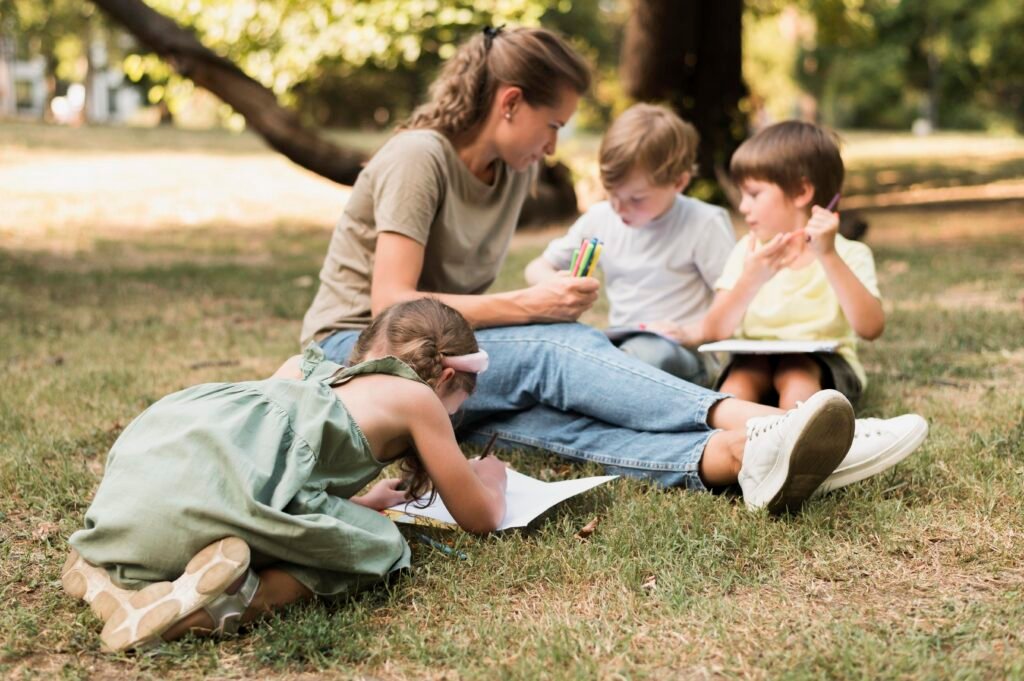
Introduction
In today’s fast-paced digital world, where children are constantly surrounded by screens and technology, a refreshing educational approach is emerging—nature-based learning. This method reconnects young learners with the natural world and is steadily becoming a popular choice in early childhood education. Unlike the traditional classroom, which focuses on structured indoor lessons, nature-based learning encourages children to step outside and explore, fostering a strong bond with nature. This shift in education is gaining traction due to its positive impact on children’s holistic development. Learn more about this innovative approach at the BEST Teacher Training Institute in Mumbai Borivali.

Brief Overview of Traditional Early Childhood Education Settings
Traditional early childhood education has long focused on structured classroom learning, following a set curriculum with a heavy emphasis on cognitive development. Children typically spend hours indoors, participating in teacher-led activities that focus on literacy, numeracy, and social skills. While this approach has proven effective in certain aspects, it often limits opportunities for physical activity, imaginative play, and hands-on learning. Children are sometimes restricted to exploring the world through textbooks or screens, missing out on the rich, multi-sensory experiences the natural world has to offer.
This structured, indoor-centric approach is commonly found in many early childhood education settings. However, there is a growing recognition of the need for more dynamic learning environments that address the whole child, not just their academic growth. This is where nature-based learning comes into play.
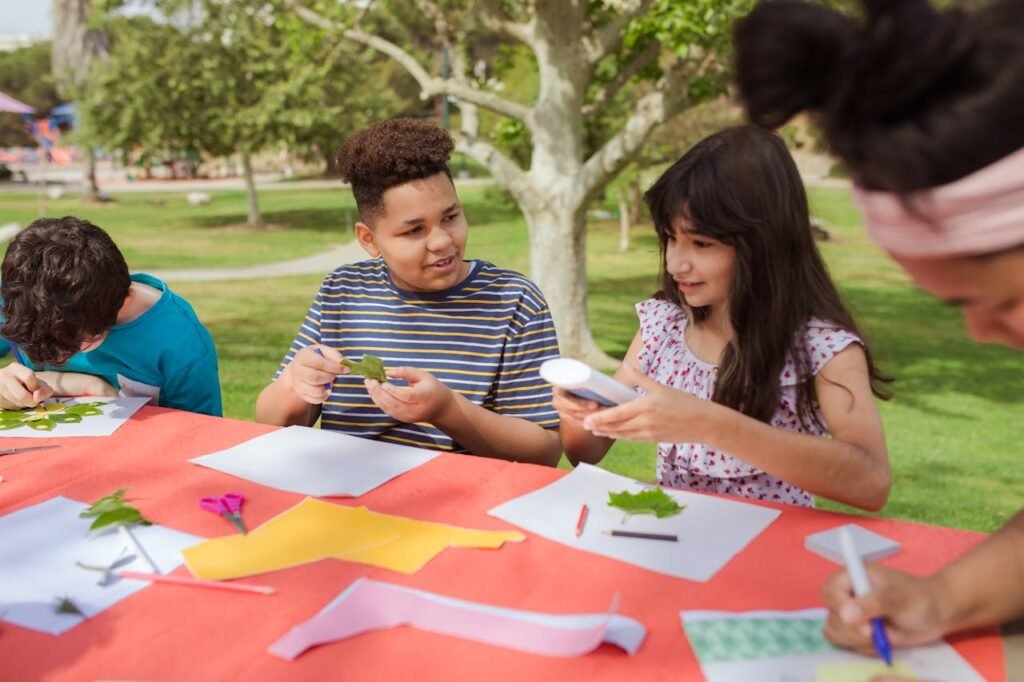
The Growing Trend of Nature-Based Learning
Definition of Nature-Based Learning
Nature-based learning is an educational approach that integrates the natural environment into the learning process. It allows children to explore, play, and learn in outdoor settings, using nature as a classroom. Whether it’s learning math by counting leaves or understanding science by observing the life cycle of plants, this approach offers practical, real-world applications of academic concepts.
Historical Context of Nature-Based Education
While nature-based learning may seem like a new trend, its roots trace back to educational pioneers like Friedrich Froebel, who founded the first kindergarten in the 19th century, where children learned through play and interaction with nature. Similarly, Maria Montessori emphasized the importance of children engaging with their environment for self-directed learning.
In recent years, however, there has been a resurgence of interest in this approach as parents and educators seek alternatives to traditional, screen-heavy education. Studies have shown that children benefit from more time spent outdoors, and programs around the world are incorporating nature into their early childhood curriculums.
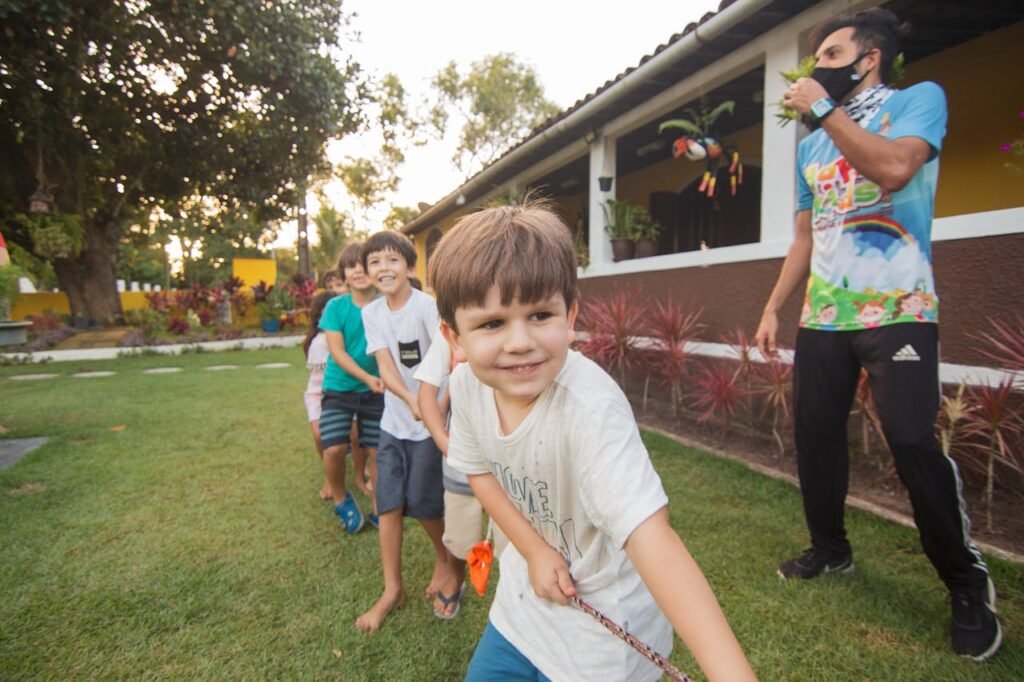
Recent Studies and Research Supporting the Trend
A growing body of research supports the shift toward nature-based learning. Studies show that children who spend more time outdoors exhibit better concentration, improved academic performance, and enhanced emotional regulation. Schools that implement outdoor learning report higher levels of student engagement and curiosity. Additionally, time in nature has been linked to a decrease in childhood obesity, anxiety, and attention disorders, all of which are rising concerns among educators and parents alike.
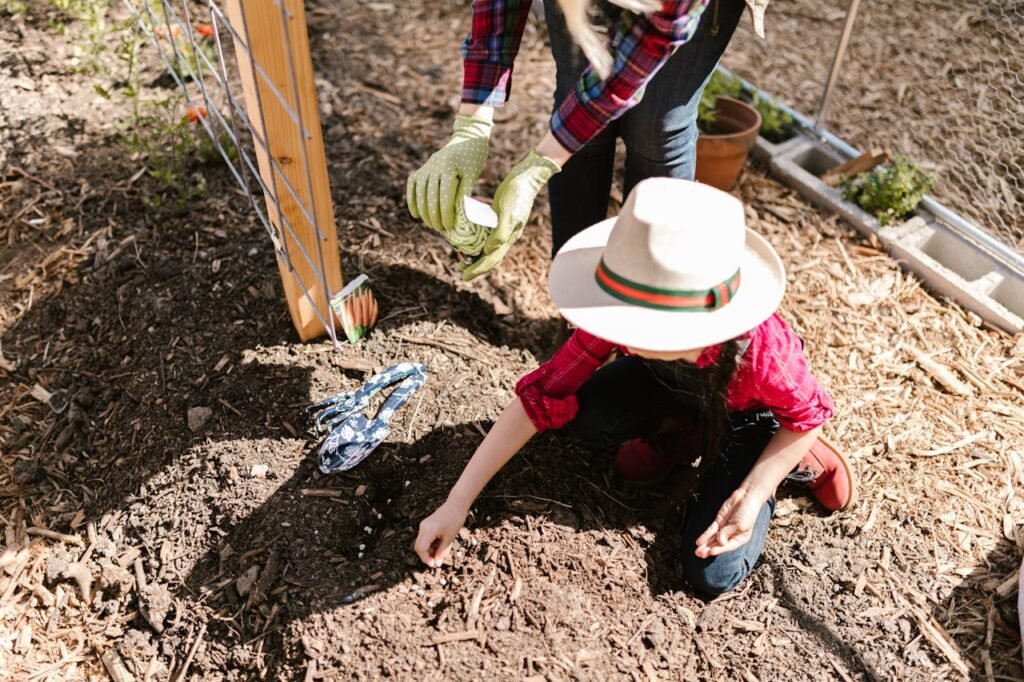
Examples of Nature-Based Learning Programs and Schools
Nature-based learning is gaining traction globally, with forest schools in Denmark, Germany, and the U.S. leading the way. In India, preschools are also adopting this model, blending it with traditional curriculums for holistic development. Institutions like the BEST Teacher Training Institute in Mumbai Borivali are pioneering this trend by integrating nature-based principles into their training. Similarly, the Best ECCEd Teacher Training Institute in Mumbai Borivali emphasizes outdoor learning in early childhood education, while the Best Jolly Grammar Teacher Training Institute in Mumbai Borivali and Best Jolly Phonics Teacher Training Institute in Mumbai Borivali are incorporating nature-based methods into their phonics and grammar instruction.

Benefits for Young Children’s Physical and Mental Well-being
Physical Benefits
- Improved Gross Motor Skills: Nature-based learning encourages activities like climbing, running, and jumping, which naturally enhance children’s gross motor skills. Outdoor play also fosters balance, coordination, and physical strength.
- Increased Physical Activity: Unlike traditional classroom settings, nature-based learning keeps children moving. Whether they’re collecting rocks or building forts, outdoor environments stimulate more physical activity, contributing to better overall health.
- Stronger Immune System: Exposure to natural elements helps strengthen children’s immune systems. Time spent outdoors reduces the likelihood of children developing respiratory issues, which are common in sedentary, indoor environments.
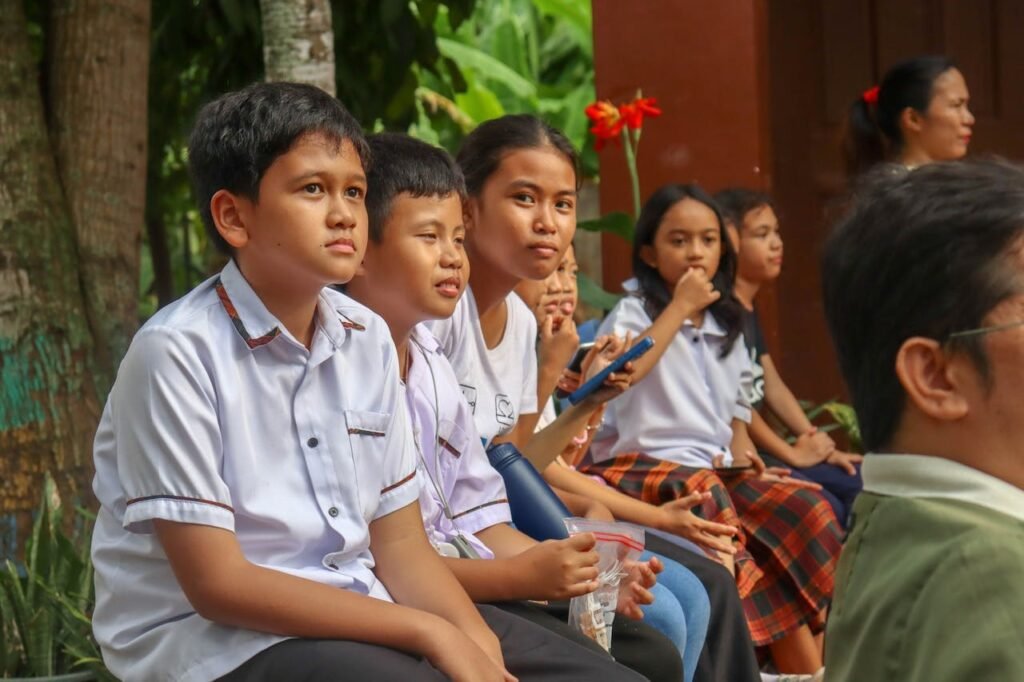
Mental Benefits
- Enhanced Cognitive Development: Nature-based learning engages multiple senses at once, creating a stimulating environment for cognitive growth. Children develop critical thinking skills by observing and questioning their surroundings, leading to improved problem-solving abilities.
- Increased Creativity and Problem-Solving Skills: Open-ended play in nature promotes imagination. Whether children are designing mud pies or creating games with sticks, nature encourages innovation and creative thinking.
- Improved Emotional Regulation: Nature has a calming effect on children. It reduces stress and anxiety, providing a peaceful setting where children can reflect and grow emotionally.
Why It Matters: Nature-Based Learning Encourages Exploration, Creativity, and a Connection to the Environment
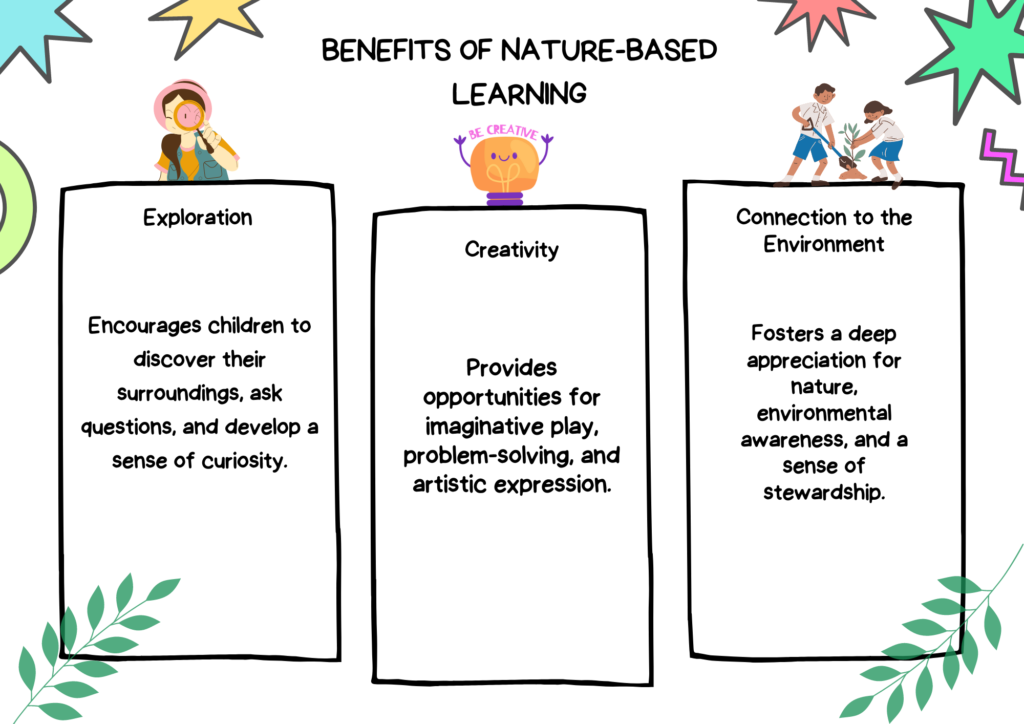
Exploration
In nature-based learning, the outdoors becomes an open-ended classroom where children can explore freely. This fosters curiosity and encourages children to engage in independent thinking. By allowing children to discover at their own pace, nature-based education promotes intrinsic motivation and self-directed learning.
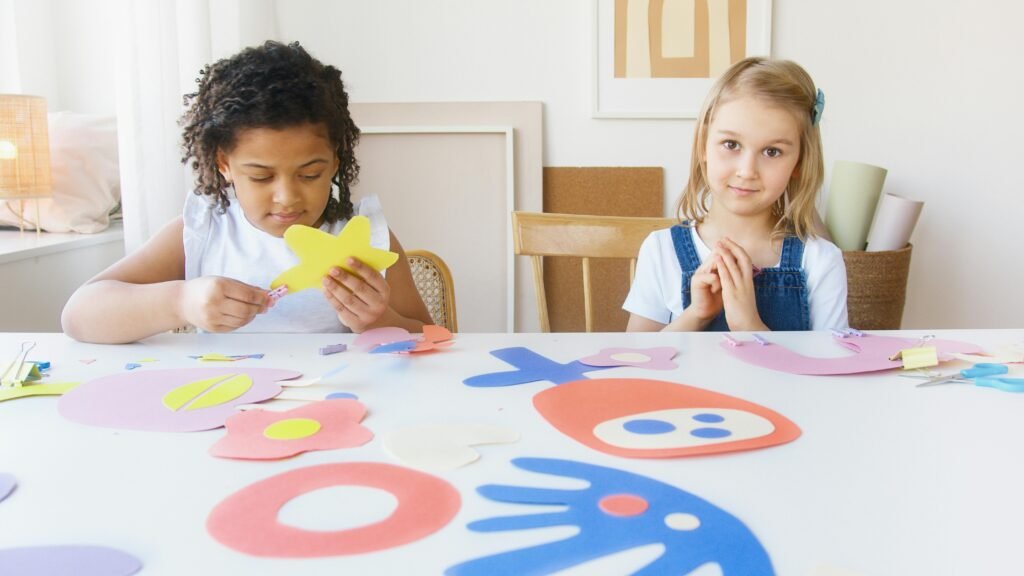
Creativity
Nature provides endless opportunities for creative expression. From building shelters with twigs to painting with mud, children are free to use their imagination in ways that a traditional classroom might not allow. This type of exploration fosters a sense of innovation and problem-solving that’s essential for developing critical life skills.
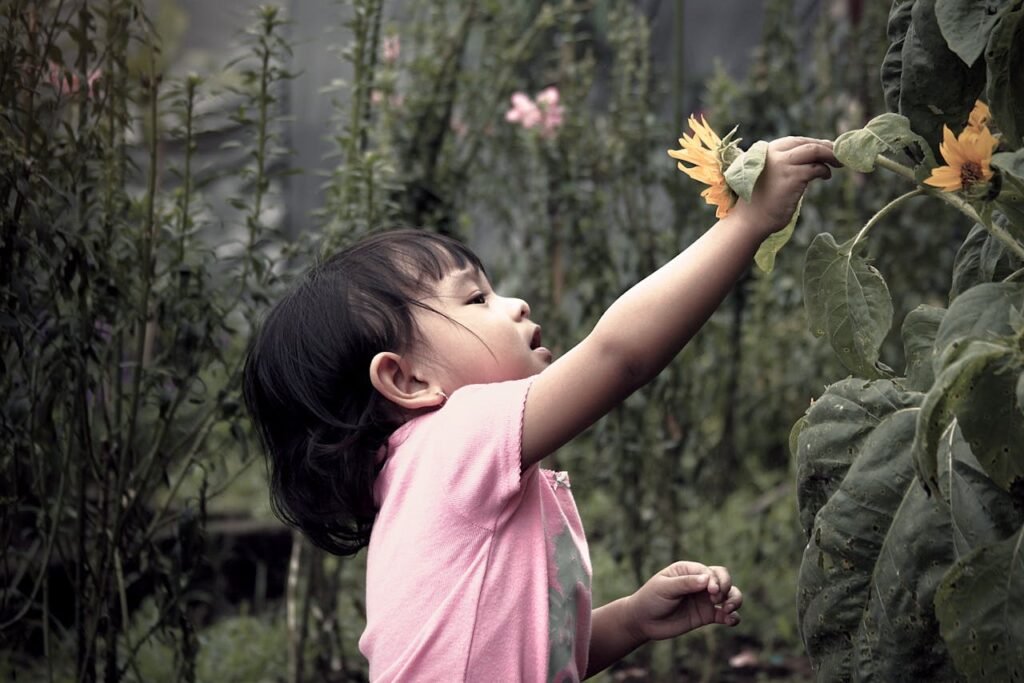
Connection to the Environment
Perhaps one of the most significant benefits of nature-based learning is the connection children build with the environment. Through regular interaction with nature, children learn to appreciate and respect the world around them. This hands-on experience teaches them about the importance of sustainability, and fostering future environmental stewardship. The Best ECCEd Teacher Training Institute in Mumbai Borivali emphasizes the value of incorporating environmental education into early childhood curriculums, highlighting its role in creating responsible global citizens.
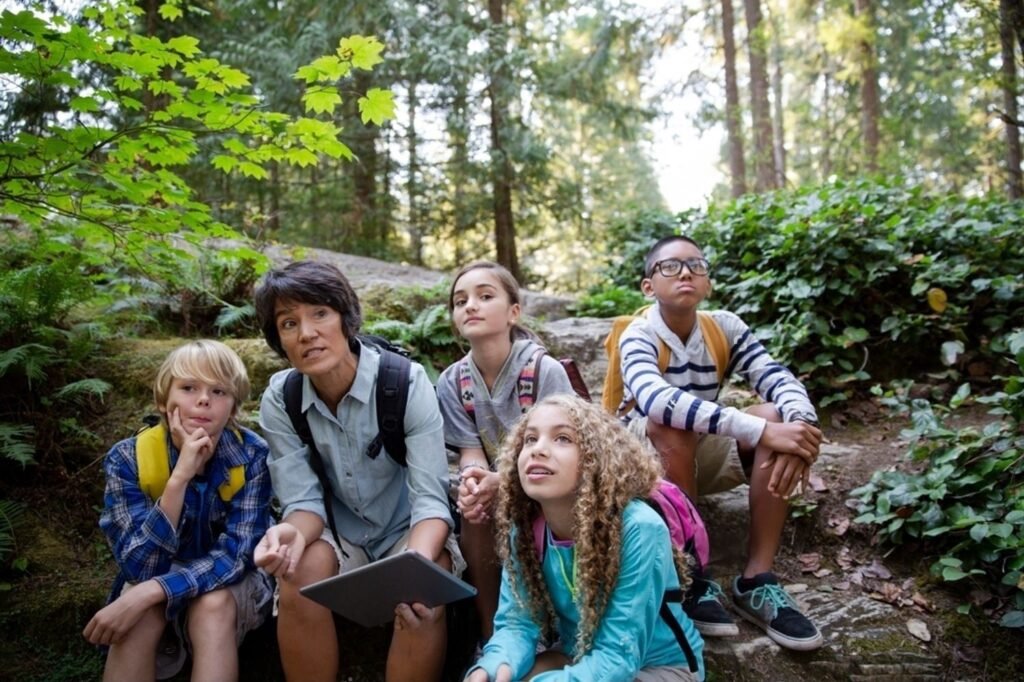
Conclusion
Nature-based learning offers a unique and powerful way to nurture the physical, cognitive, and emotional development of young children. By moving beyond the confines of traditional classroom settings, this approach fosters a love for learning, a connection to the environment, and critical life skills that children will carry with them into adulthood.
For parents, educators, and policymakers, supporting the integration of nature-based learning into early childhood education is vital. Institutions like the BEST Teacher Training Institute in Mumbai Borivali, Best Jolly Grammar Teacher Training Institute in Mumbai Borivali, and Best Jolly Phonics Teacher Training Institute in Mumbai Borivali are already recognizing the importance of this trend, offering training and support for educators to embrace nature-based practices.
The future of education lies not only in what we teach but also in how and where we teach it. It’s time to step outside, breathe fresh air, and let nature guide the way.


